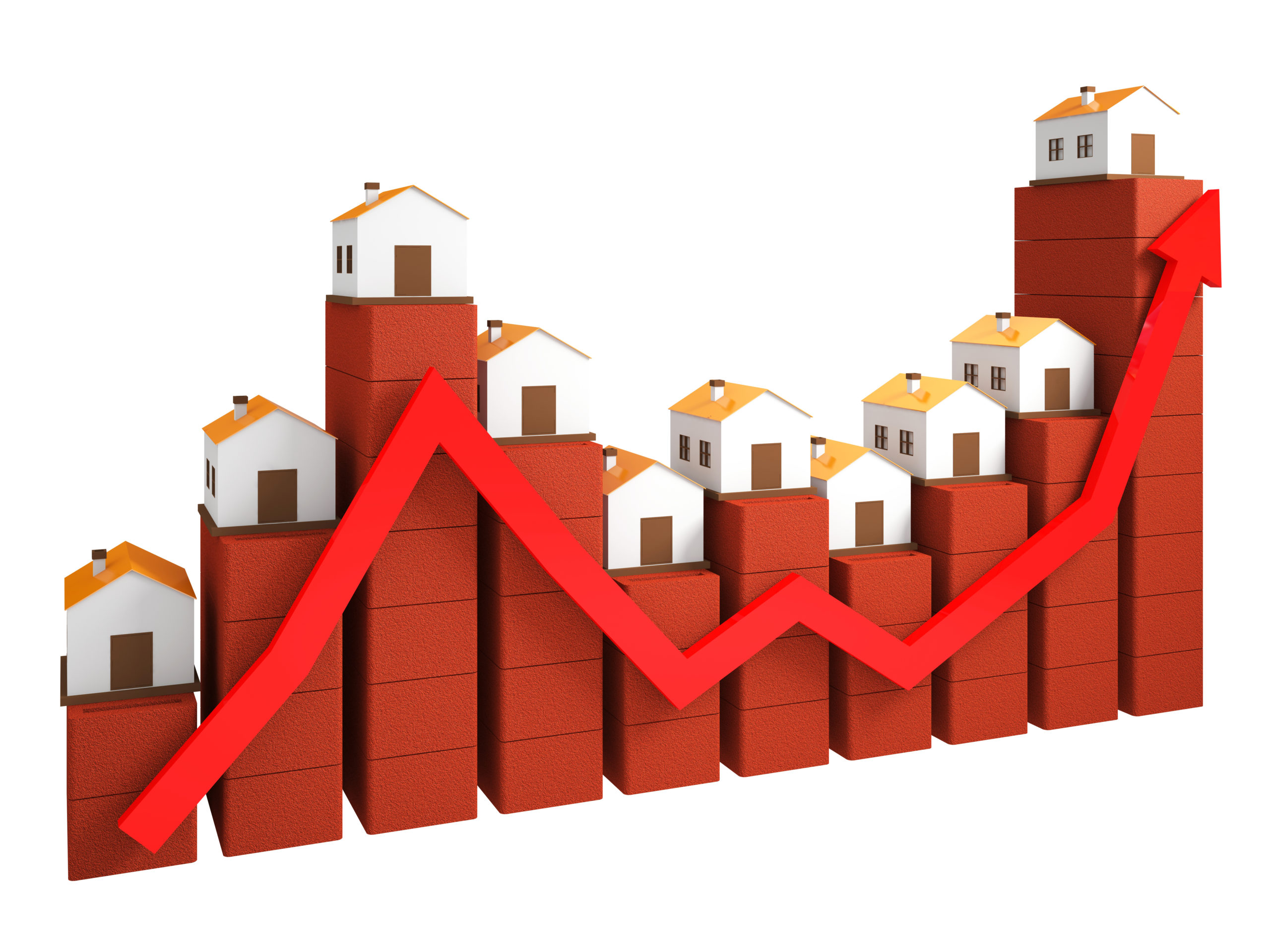The real estate market has a habit of being a reflection of its era, a timeless indicator of economic and social prosperity. For first-time homebuyers or real estate investors looking to make educated business decisions, understanding the ebbs and flows of the real estate market can be resourceful when choosing to move forward with a real estate investment or conduct real estate transactions. The real estate and housing market today looks very different from five years ago, and even more disparate from the market of the late 20th century. By being able to understand real estate price trends, current and new property owners can optimize their real estate experiences and work the market to their favor.
In this article, we’ll analyze some of the real estate market trends of 2021, discuss the importance of being able to anticipate these changes, and identify some potential real estate trends we can anticipate on the horizon.
A real estate investment can be one of the largest financial choices made in someone’s life. Whether it’s a first-time purchase or one of many real estate investments, understanding the current real estate market is crucial for ensuring you’re making the correct real estate decisions. Buying or selling one year can look drastically different the following year with just a few changes in the economy or local housing availability. Deciding to buy or sell at the right time plays a huge role in real estate transaction’s success.
Benefits of Real Estate Market Trend Analysis
Some of the benefits of valuing real estate market trend analysis include, but are not limited to:
- Educated Investments
- Future Performance Predictions
- Property Owner Peace & Understanding
- Buyers and Sellers Stay Competitive
- Properly Timed Investments
What Causes Fluctuations in the Real Estate Market?
The real estate market has always shifted with the times. In periods of economic prosperity, real estate thrives, and in times of economic and social turmoil, the market tends to slow down and experience challenges. The economy and real estate have always been interconnected, with economic factors playing one of the most significant roles in causing changes in the housing market. Interest rates also play a substantial part in the real estate industry’s sensitivity to change. When interest rates are low, mortgages are less expensive and homebuyer attentiveness and purchasing power increases. Likewise, when interest rates are high borrowing becomes more expensive and the market tends to slow down.
Government regulations and subsidies can also cause fluctuations within the market. Some parts of the country have a higher demand due to potential tax credits, subsidies, and deductions that the local legislation has put in place. This can put a temporary or permanent incentive for homebuyers to have an interest in those locations. Demographics, the data that describes the composition of a population, can also play a role within the real estate market. Real estate market trends can be dramatically impacted by a major shift in the demographic, especially if a certain age or social group is more or less likely to purchase real estate.
In the wake of COVID-19, the real estate market has changed dramatically. Numerous economic and social fluctuations have occurred that bring consequences that we continue to experience to this day. While the many factors that influence the real estate market can make trends difficult to predict, it’s much easier to interact with the housing market once investors can identify what impacts it the most.
2021 Real Estate Market Trends
A perfect example of real estate’s vulnerability to economic and social factors is the consequences the market continues to face in response to COVID-19. Since the beginning of 2020, the real estate market has drastically changed its pace in both positive and challenging ways. The duration of COVID-19’s consequences on the real estate market is hard to determine, but by being mindful of real estate price trends and fluctuations in the market we can continue to make educated real estate decisions.
Let’s explore some of the most notable real estate market trends we have identified in the past year. These real estate trends are not an indication of a negative nor positive market but simply indicate current economic interests.
Low Interest Rates, High Homebuyer Interest
One of the most notable trends in wake of the pandemic has been low mortgage interest rates. Interest rates can change daily based on numerous economic factors, and in early 2021 the real estate market experienced some of the lowest interest rates of all time. These interest rates have caused significant changes in the real estate market by influencing homebuyer interest, purchasing power, and overall affordability. With lower interest rates, buyers can afford more expensive homes while keeping their monthly payment the same, in turn driving prices upwards.
While employment rates were negatively affected in response to COVID-19, as individuals return to their jobs we’ve noticed a drastic peak in homebuyer interest. This could be an important factor for homeowners considering placing their home on the market, as they can potentially get a larger return on their initial investment while also takeing advantage of low mortgage interest rates on a new home.
Lower Housing Inventory
As a result of low mortgage interest rates and increased homebuyer interest, the real estate market has experienced a subsequent lack of supply within the housing industry. This might be confusing because new homes are being built every day, so why would there be a limit in supply if there is increased demand? While low mortgage interest rates played a significant role in housing shortages, reduced construction also played a substantial part in creating this problem.
The pandemic resulted in many construction workers staying at home or getting laid off which significantly slowed construction processes. This also caused the price of labor to be dramatically increased and led to a general lack of housing construction. This has caused popular real estate regions to experience price jumps due to increasingly high demand and low supply.
In addition, there was also a general wariness by property owners to list their homes for sale. Listing their home for sale would likely require buyer walkthroughs, potentially face-to-face interactions, and risking exposure to COVID-19. While that sentiment may have changed slightly since the beginning of the Pandemic, it is still something homeowners consider in today’s market.
Suburban Migration
Any shift in a population’s mindset is likely to impact real estate market trends and we certainly noticed that with the pandemic’s demand for remote work. At the beginning of the pandemic, countless employees were told to work from home by their employers, in many cases indefinitely. For those living in cities for the sake of proximity to their jobs, the pandemic created the perfect excuse for a change of scenery.
The real estate market has experienced a considerable suburban migration as a result of many city commuters no longer needing to do travel to their jobs every day. If a person will always be working from home, it’s natural for the homeowner to want more space. This has resulted in suburban area real estate prices increasing due to the increase of demand as well as city real estate opportunities being increasingly available.
Low Mortgage Rates, High Rent Prices
While we’ve taken note of how low mortgage interest rates have created a great opportunity to buy for interested homeowners, rental properties have experienced many challenges recently. As a result of widespread unemployment, tenants began to struggle to pay their rent. The CDC stepped in to establish an eviction moratorium for tenants negatively impacted by the pandemic, leading to many landlords and rental property owners taking a hit on their rental income.
As a result of these fluctuations within 2020 and 2021, rental prices have drastically increased to help stabilize from profits lost. They’ve also increased as a result of the housing shortage causing rental interest to substantially grow at the same time. We anticipate this uptick in rent prices will continue to trend upward in the future.
Less Retail Space, More Distribution Properties
If there is anything that the pandemic has made more convenient, it’s the luxury of online shopping for everything and anything consumers need. Ecommerce businesses have thrived due to COVID-19, and are only projected to grow in popularity over time. This has caused a spike in interest in distribution property real estate.
We’ve noticed a significant increase in warehousing, fulfillment centers, and distribution buildings for the past few decades, but construction has majorly picked up pace in recent years. Real estate investors that are looking to modernize their investments should stay aware of the potential profits gained from distribution real estate. The drop of interest in visiting brick-and-mortar retail spaces has created an opportunity for investors to get a higher return on their investment by placing their efforts in warehousing and fulfillment real estate spaces.
Seller’s Market
When conducting real estate market trend analysis and studying economic trends in general, it’s common to identify the market’s performance as a “buyer’s market” or a “seller’s market”. A buyer’s market is characterized by there being more homes and properties on the market than they’re able to sell, which hasn’t been the case recently. The U.S. is currently experiencing a seller’s market, one defined by elevated real estate prices and low inventory.
These heightened home prices, high competition for low housing inventory, and low mortgage interest rates have created the prime seller’s market for current homeowners looking to capitalize on their real estate investments.
What Real Estate Market Trends are on the Horizon?
The real estate market is constantly changing and during times of economic uncertainty, it can be especially challenging to predict. COVID-19’s impact on the real estate market continues to display its effects, but we’ve noticed a slight cool-down in the later part of 2021. For real estate investors looking to maximize their profits, it’s important to not only understand current real estate market trends but also how these trends will impact the market down the line.
Let’s explore a few real estate trends we can anticipate in 2022:
- Increased Housing Inventory: With the stabilization of construction processes, housing inventory is projected to increase in the upcoming year, providing more options for interested buyers and a little less competition when searching for the perfect home.
- Housing Prices Will Rise: Due to the lack of supply and increased demand, home prices have increased and will likely continue to rise due to mortgage interest rates remaining low. Recent trends have caused prices to increase, but we anticipate prices will at least increase at a slower rate in the next year.
- Continued Suburban Migration: Due to increased housing construction and hyper-normalization of remote work, we will likely continue to see a significant migration toward suburban areas near cities.
- Increased Mortgage Interest Rates: While mortgage interest rates have yet to increase in 2021, all good things end eventually. Economists don’t believe these interest rates will drastically sky-rocket but don’t foresee them staying at their record lows. This means that interested homebuyers will potentially need to make higher monthly payments if they choose to wait till interest rates increase.
- More Buyer-Friendly Market: While we’re likely to experience a seller’s market for quite some time as we stabilize from the pandemic, the aforementioned trends we anticipate on the horizon should at least create a more buyer-friendly environment.
CT Homes Specializes in Real Estate Market Trends
There are countless benefits of being able to identify and predict real estate market trends for homeowners, real estate investors, or individuals looking to get the most value out of their real estate transactions. For homeowners looking to sell at the perfect time, CT Homes can help expedite the process. Learn more about how CT Homes can help sell your home quickly and leverage current real estate market trends to your advantage.
Take advantage of the market when the timing is right! Get a Cash offer today!






